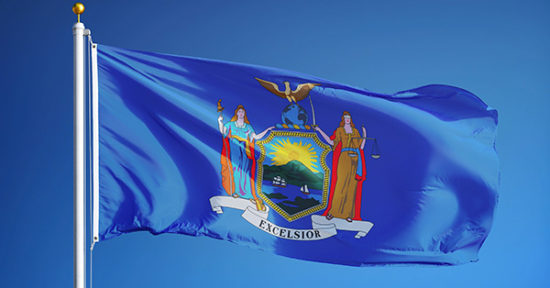
Equal Pay Law – New Law Becomes Effective Oct. 8
Beginning Oct. 8, 2019, New York state law will prohibit employers from paying different wages to employees solely because they belong to a protected class. This means that employers must pay the same wages to employees who perform substantially similar work. However, the law also allows wage differentials based on one of the following factors:
- A merit system;
- A seniority system
- A system which measures earnings by quantity or quality of production; and
- A bona fide factor other than status within one or more protected classes, such as education, training, or experience.
Protected classes in New York are groups based on the following characteristics:
- Age
- Color
- Creed
- Disability
- Domestic violence victim status
- Familial status
- Gender expression
- Gender identity
- Marital status
- Military status
- National origin
- Predisposing genetic characteristics
- Race
- Sex
- Sexual orientation
NYS Mandatory Sexual Harassment Training – Due October 9th for all employers
Please see our resources section here to complete the required training for your organization
Protections against harassment & discrimination – New Law Becomes Effective on Oct. 11
On Aug. 12, 2019, New York adopted a new series of measures that expand the scope of anti-harassment and anti-discrimination protections for employees. Specifically, the new law:
- Enables employees to pursue harassment claims without having to prove that unwelcome behaviors are severe or pervasive (though they still need to be more than petty or trivial);
- Requires employers to provide a copy of their sexual harassment prevention policies to employees at the time of hire and annually thereafter (as part of the sexual harassment prevention training);
- Prohibits employers from using nondisclosure agreements to prevent disclosure of the underlying facts and circumstances of a harassment or discrimination claim except in limited circumstances at the complainant’s request;
- Protects an employee’s rights to pursue complaints by requiring that all nondisclosure agreements in employment contracts include language to notify employees that they may still file a complaint of harassment or discrimination with a state or local agency and testify or participate in a government investigation;
- Prohibits employers from requiring employees to submit their harassment and discrimination claims to arbitration before starting any legal action; and
- Increases the statute of limitations for filing a sexual harassment claim from 1 to 3 years (discrimination claims must still be filed within 1 year of the alleged conduct).
NYS Requires leave for victims of domestic violence – Law to Take Effect Nov. 18
New York state has amended its Human Rights Law, effective Nov. 18, 2019, to require employers to provide leave to employees whom the employer knows are victims of domestic violence. Leave (for a reasonable amount of time) must be allowed under the law for the following purposes:
- To seek medical attention (including for a child victim);
- To obtain services from a domestic violence shelter, program or rape crisis center;
- To obtain psychological counseling (including for a child victim);
- To take action to increase safety from domestic violence in the future, including relocating; or
- To obtain legal services, assist in the prosecution of the offense or appear in court.
Failing to provide the leave as a reasonable accommodation is an unlawful discriminatory practice, except if it would cause undue hardship to the employer, as defined in the law. Employers may require employees to take the leave as ordinary paid leave, where available, and as unpaid leave, where not.
Paid Family Leave Rates for 2020 – State Figures to Increase in January
The New York State Department of Financial Services has announced that for calendar year 2020, employers may deduct 0.270% of an employee’s weekly wage, up to an annual cap of $196.72, to pay the premium cost for state paid family leave insurance.
Effective January 1, 2020, eligible employees are entitled to up to 10 weeks of paid family leave in any 52-week period at 60% of their average weekly wage, capped at 60% of the state average weekly wage ($1,401.17), which is $840.70.
NYS Bans Salary History Inquiries – New Law Effective Jan. 6, 2020
On July 10, 2019, New York enacted a new law that prohibits all employers in the state from asking job applicants and employees about their past salaries or wages.
Specifically, effective Jan. 6, 2020, employers cannot:
- Rely on an applicant’s wage or salary history to determine whether to offer a job to, or how much to pay, the applicant;
- Seek, request or require a wage or salary history from an applicant or employee as a condition of, or consideration for, employment;
- Retaliate against or refuse to interview, hire, promote or otherwise employ an individual based on his or her past wage or salary or because he or she has either refused to provide past wage or salary information or filed a complaint with the New York Department of Labor against the employer; or
- Seek, request or require a wage or salary history from the applicant’s current or former employer.
An employer may confirm an individual’s wage or salary history if:
- An offer of employment for a specified compensation amount has been made to the individual; and
- The individual responded to the offer by providing prior pay information to support a higher compensation amount.
